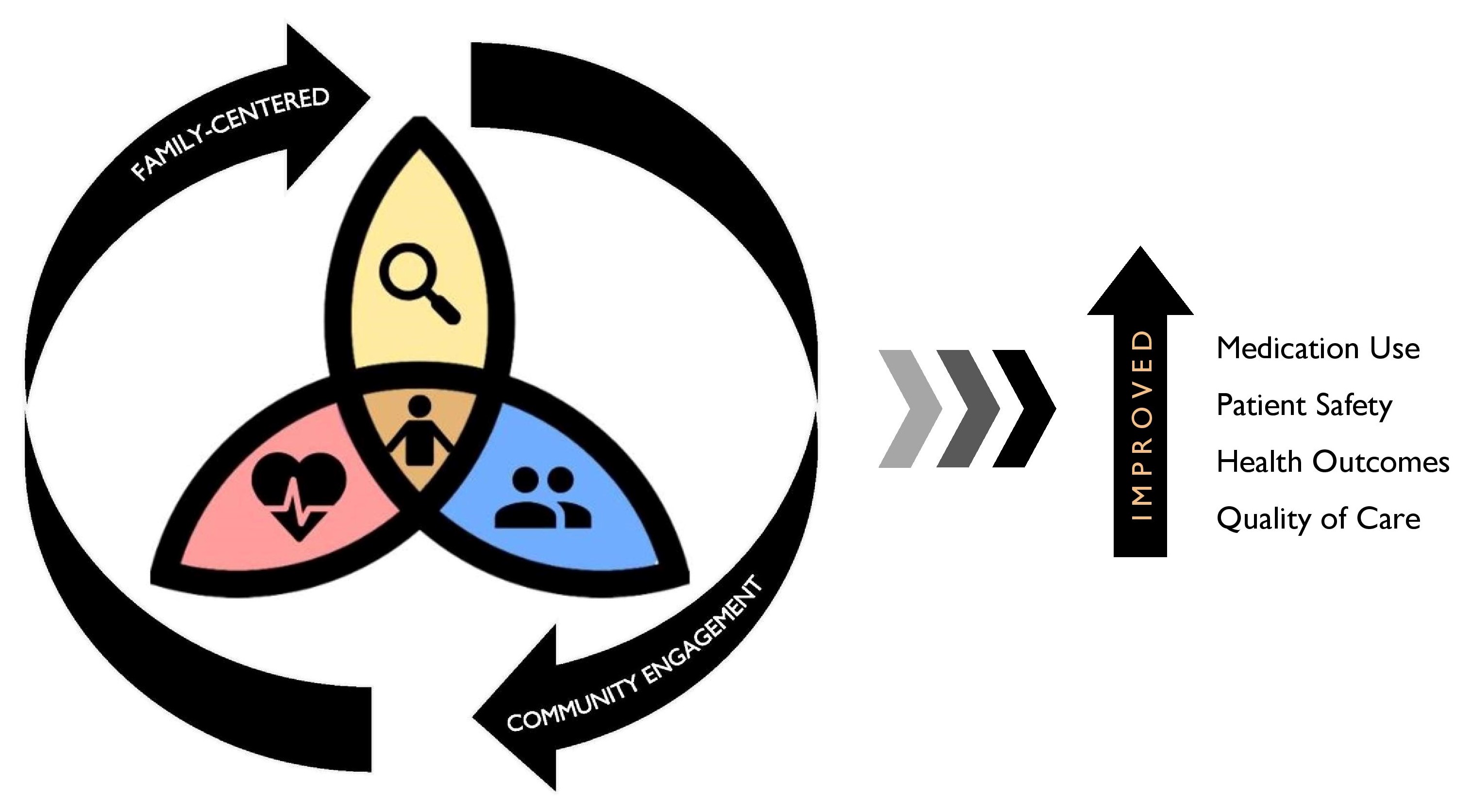CRoME Philosophy
Collaborative Research & Innovation
Collaboration is a valuable asset and is at the heart of our work. Collaborative partnerships and interdisciplinary research processes are integral to our capability to identify innovative solutions that address complex medication use and health challenges for patients and their families. These solutions require contextual understanding, longitudinal efforts, collaboration on multiple system levels, and, often, interdisciplinary designs. Collaborative approaches are achieved by intentional design, by action-oriented research, and by engaging key community stakeholders at various stages of the research process.
Family-Centered Approach
Families play a crucial role in ensuring the health and overall well-being of patients of all ages. Accordingly, the health status and behaviors of one family member could positively or negatively impact the health status and behaviors of other family members. Family and patient engagement is firmly embedded into our approach to improved medication use and health outcomes. Our family-centered approach is based on the understanding that families can be a vital source of strength, support, and influence in promoting medication safety and positive health behaviors. Furthermore, this approach recognizes that the perspectives and information provided by families of young and older patients are valuable in preventing and managing health conditions.
Community-Engaged Research
Improving medication use and health outcomes requires the engagement of key stakeholders throughout the research process. Community engagement is increasingly recognized as a vital component of efforts to ensure medication safety, prevent disease, manage chronic health conditions, expand access to quality healthcare, and achieve health equity. Hence, engaging with stakeholders is imperative to tackling medication-use challenges and health issues of the communities in which we live and work.
Optimal Patient Outcomes
In our model of collaborative research, we recognize that optimal patient outcomes are achieved when researchers, healthcare teams, and patient social support systems cooperatively share insights with one another, with each discipline fully recognizing the value and importance of the other disciplines.
Support Networks
It takes a village to help vulnerable patients achieve desired positive health outcomes. Support networks are crucial and may include but are not limited to family members, friends, neighbors, peers, teachers, coworkers, healthcare professionals, school settings, and other various communities in which people live and work.
Healthcare Teams
Collaboration means interdisciplinary professionals working together with patients and patient support systems to investigate complex healthcare concepts with the hopes of producing novel research findings and practical solutions. We collaborate with a variety of healthcare professionals to identify opportunities for pharmacists to continually support the provision of essential health services for patients and their families.
Researchers
As researchers and scientists, we focus on investigating new models for improving medication use and healthcare while identifying creative approaches to solve problems and address healthcare challenges of our communities in which we live and work.
Key Elements of Collaborative Research
- Collaboration via education
- Collaboration by engaging patients and family members
- Collaboration in overall research development and design
- Collaboration enhanced by the dual role of health professionals and researchers
- Collaborative involvement of community stakeholders in different stages of the research process





